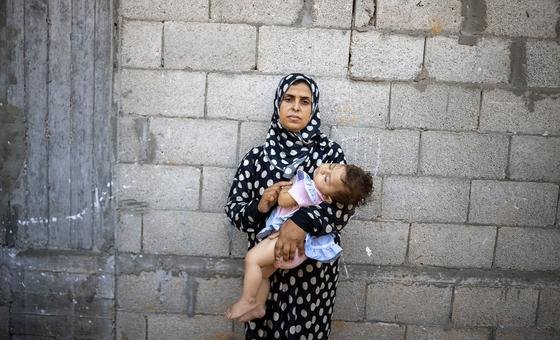More than a year has passed since Israeli military action began on October 7, 2023, following attacks by Hamas and other extremist groups on Israel.
Against this background, there is a catastrophic humanitarian situation in Gaza, where 43 thousand Palestinians, including about 43 thousand pregnant women, have been killed and 1.9 million displaced.
In the present scenario, only limited postnatal and family planning services are available to more than 1.5 lakh pregnant and lactating women.
They face serious health risks due to lack of adequate medical care before, during and after delivery.
Pregnancy and childbirth complications and risks have increased while access to safe services has declined, particularly in northern Gaza.
The warning from UN agency UNFPA comes at a time when 70 percent of Gaza’s infrastructure has been destroyed, leaving the entire population without access to food, clean water, health care and basic shelter.
Gaza’s health system has also collapsed, with nearly 50 percent of hospital health services at a standstill.
Success of the vaccine campaign
Meanwhile, the World Health Organization (WHO) said nearly 9 out of every 10 people in northern Gaza had received a second dose of polio vaccine.
15,000 children under 10 years of age were immunized during the November 2-4 period, which is 88 percent of the total target. Also 84 thousand children have been given ‘Vitamin A’.
Dr Rick Peppercorn, the UN representative for the Occupied Palestinian Territories, told reporters in Geneva on Tuesday that it was a remarkable achievement.
The operation, previously limited to northern Gaza, will now be conducted in four densely populated areas on November 5.
The second phase of the campaign has already been completed in central and southern Gaza, but in northern Gaza, vaccination was delayed by Israeli military action and bombardment, blockades and evacuation orders.
At least 90 percent of children in every community and area need to be vaccinated to prevent the spread of the polio virus. A second dose is usually given within six weeks, but a delay can reduce the effectiveness of the vaccine and reduce immunity.

